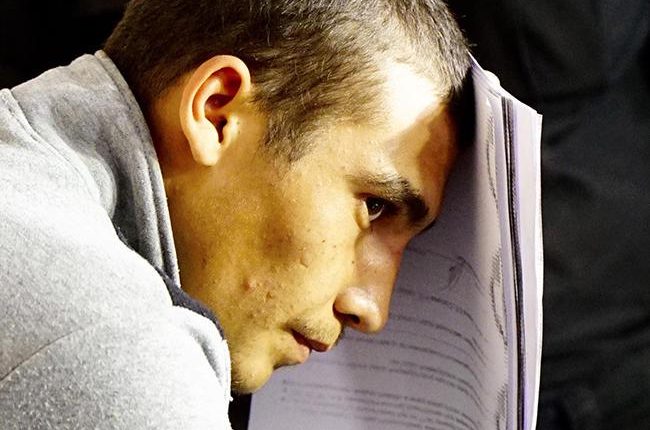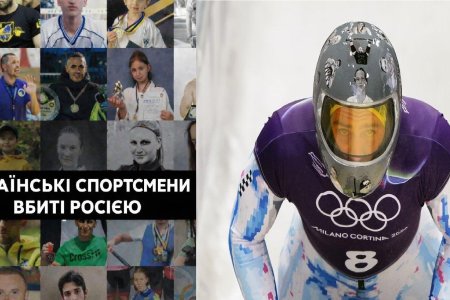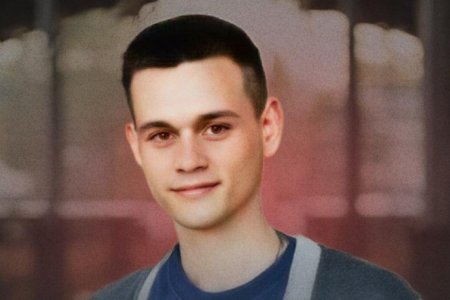
The European Court of Human Rights has found that Ukraine violated the rights of Myhailo Chebotar, a young man who has been in detention for over six years despite serious concerns about the charges against him. The Court was not asked to consider the merits of the charges, however some of the violations it found already point to the flaws in this case.
The judgement passed on 10 November merged three similar applications. It found that Ukraine had violated Chebotar’s rights under Article 3 of the European Convention on Human Rights (the prohibition of torture) and Article 13 (the right to an effective remedy before a national authority). Chebotar was awarded 9,800 euros in damages, as well as 250 euros for legal and other expenses.
Chebotar, via his lawyer, had cited multiple complaints regarding his detention. The police had only formally detained him seven hours after he was, in fact, taken into custody. That period of time where the police did not admit to his detention is important, as he asserts that he was beaten to try to force him to confess to a crime he has consistently denied committing.
He also complained of inhuman and degrading conditions in the Odesa SIZO [remand prison]. He was held in a small cell with four other men, with this resulting in him being infected with an open form of tuberculosis.
The authorities had not taken any measures and had not carried out an effective investigation, despite repeated complaints. The Court in Strasbourg stressed that there are no other effective remedies in Ukraine, with this long identified as a systemic problem.
In reporting on the judgement, Tetiana Gerasimova, from the Centre for Legal Monitoring points out that since 27 August 2016, Ukrainian courts have persistently refused to release Chebotar from custody. They produce only abstract phrases to justify this, without providing any factual circumstances or arguments in favour of extending his detention. They ignore the fact that he has a permanent abode, and family, and that he had never been prosecuted before. There have been 36 detention hearings, with the court automatically extending the detention with the same wording and even the same mistakes on each occasion.
This is especially shocking given strong grounds for fearing that the wrong person is on trial. The ECHR judgement was attached to the appeal against the latest automatic extension of Chebotar’s detention. The Odesa Court of Appeal ignored it and upheld the Prymorsky District Court’s detention order.
Chebotar and his lawyer contend that the actions of the state in detaining him and continuing to keep him in detention were discriminatory, linked with his Roma ethnicity. They point out that both the protocol of detention and the application for Chebotar to be remanded in custody both violate Article 209 § 5, by referring to his ethnicity, using the term ‘Gypsy’.
Over a year has passed since Chebotar himself, on 25 November 2021, finally gave testimony before the Prymorsky Court in Odesa. This was important in itself, and also enabled publication of the account given earlier in court by two brothers which largely backed Chebotar’s version of events.
Angelina’s body was found at around 7a.m. on 27 August 2016, on some unoccupied land behind where she had lived, with her mother, stepfather and half-brother. Her mother says she discovered that Angelina was missing when she arrived back from work at 3 a.m., but the police were not informed before morning.
Chebotar knew the family, sometimes looked after the children and had been with the stepfather, Oleksandr Matiash at a birthday celebration the previous evening and then at the bar where the mother, Kateryna worked. His cap was found in the family’s home after Angelina’s body was found, and a tracker dog led the police to the then 21-year-old Chebotar’s home.
Chebotar has lived in the area all his life and was working locally, however his Roma origin was used as pretext for appalling anti-Roma riots which the police did nothing to prevent and which the local authorities effectively abetted.
The problems with all aspects of the case against Chebpta have been highlighted by, among others, Chebotar’s lawyer Andriy Leshchenko and Tetyana Gerasimova. The concerns also prompted a television team from TV Ukraina to ‘carry out their own investigation’. In their film, they asserted that the DNA traces that had never been identified appeared to match Matiash’ DNA. It is disturbing that two applications from the defence to have the stepfather also take a DNA test, given the unidentified traces, were opposed by the prosecutor and rejected by the court.
The account that Chebotar gave to TV Ukraina corresponded with that provided in court on 25 November. He and Matiash were with a number of people on the evening in question, but were walking behind the others, on the way to the village bar, when Matiash said he wanted to drop in home and check that Angelina and her 5-year-old brother were asleep.
Chebotar asserts that, when they went into the house, Angelina was not in her bed. Matiash got angry, and when she appeared, having simply gone outside to the toilet, he hit her around the head and she fell. Chebotar lifted the little girl up and pushed Matiash who then shoved him. Chebotar says that at this point he turned around and left since “I didn’t want to fight in front of the child”. He assumes that it was then that he lost his cap.
He arrived at the bar at 1 a.m. and was there, inside or outside, with others from then on. Matiash turned up 20-25 minutes later, wearing other clothes. Most worryingly, Chebotar says that Matiash went into the bar, looking angry, and went up to his wife and told her something, with his arms waving about. It was clear, he says, that they were quarrelling. About 15 minutes later, Matiash called Chebotar over to the corner of the bar. He got out a screwdriver and said that he’d borrowed it from Chebotar and had forgotten to return it. Chebotar says that he simply took it and put it in his pocket. Chebotar then returned to the group, and says he headed off home at 2 a.m. He told the court that he is convinced that Matiash killed the little girl.
One of the many disturbing aspects of this case is the fact that no other version was ever considered from the outset. Within an hour or so of the discovery of Angelina’s body, four individuals who were not in uniform and did not show any ID turned up at his home. One of them dragged him out of bed and forced him, face down, on the floor, while another man kicked him. The other two began rummaging in the room, looking for something. He was then handcuffed and taken to the village council building where they proceeded to beat him around the head, and ears. One of them put a glove on, pulled down the young man’s trousers and began squeezing his genitals. They kept demanding that he ‘confess’, and he kept asking what he was supposed to confess to. He says that when they finally told him, and said that they had found the screwdriver at his place, he told them that he had received it from Matiash, but they ignored him. One of the men, named as an investigator, threatened that he would be sent to fight in Donbas, while another made insulting comments about, as he put it, “you Gypsies” and said that “you should be shot”.
Alibi
Two separate forensic examinations found that the crime had been committed between 22.00 and 01.25, with this giving Chebotar a totally unbreakable alibi. Instead of at least considering other possible suspects, the prosecutor Svitlana Kolohreva has concentrated on trying to stretch out the possible period by putting the forensic scientists under huge pressure. The first expert, Oleh Halev did, under such a grilling, agree to extend the period, but only until 02.00. This was when Chebotar had only just left the bar, and clearly too early. The prosecution is claiming that the crime was committed between 2.30 and 3.00, despite the forensic assessments.
Witnesses
In October 2019, the two brothers Muntian and Churar gave testimony that contradicted the prosecution’s version and raised serious doubts about the ‘investigators’’ wish to find the real killer. They said that they had been shouted at by the police who demanded that they say that Chebotar had killed the little girl and that the cap was his. They defended Chebotar then and in court, and said that Angelina’s stepfather had beaten her and that she always had bruise marks on her from beatings. They also alleged that the little girl’s mother had not protected her and that, on the contrary, she often complained that she was sick of her disobedient daughter. Chebotar has been in detention since 27 August 2016, so there is no way that such testimony was agreed in advance with him.
There was also critical, and much belated, evidence during the hearing on 18 May 2021, which would back a time of the crime fully in keeping with the two forensic assessments, but which would exonerate Chebotar. Most worryingly, the testimony was first given immediately after Angelina’s body was discovered, but was ignored.
It is solely thanks to the defence’s perseverance that the court finally learned of this testimony from two sisters - Valentina Kazanzhi and Veronika Dobreva Kazanzhi explained by video link, on 18 May 2021, that she, her sister and two female friends were in the Fortuna Bar on the relevant evening (26-27 August 2016). Between 12.30 and 1 a.m., they were outside, smoking. They were standing near two electricity posts which are not far from Angelina’s home, and from the land behind the home where the little girl’s body was found. As soon as they came out, they heard screams from that direction. Kazanzhi demonstrated to the court several times the sound that she had heard and said that at the time they thought that people were having a row. She says that she was already home at 2.00, with this crucial since the prosecution is claiming that Chebotar committed the murder after that time. Kazanzhi says that she went to the police, after learning of the murder, and was questioned by the investigators. Presiding Judge Viktor Ivanov asked the witness to specify when exactly she had heard the screams and she reiterated that it had been between 0.30 and 1.00 on 27 August 2016. Chebotar has a watertight alibi for that time, Matiash has none.
DNA / biological traces
Chebotar’s account, including the fact that he could not see what condition the screwdriver was in, would explain how there could have been traces of blood on his jacket, and, probably, the other scant physical evidence. There is extraordinarily little DNA despite this allegedly having been a sexual crime carried out in haste and in the dark. Leshchenko has confirmed that there was no trace of Chebotar’s semen on the little girl herself, or on her clothes.
There has also been speculation that some of the evidence that would seem to incriminate Chebotar could have been faked. A hand swab taken from Chebotar, for example, contained only Angelina’s DNA, and not his own. A different forensic institute did not find Chebotar’s DNA in the samples taken from under the victim’s fingernails (of her right hand).
Two expert assessments found biological traces of a ‘third, unidentified individual’, yet the defence’s two applications (in November 2019 and in April 2020) for Angelina’s stepfather to undergo a DNA test were rejected. No other attempts to identify this individual would appear to have been made.
All of these are very real concerns. Instead of being addressed, however, the trial is continuing at snail pace, with Chebotar having already spent more than six years in detention.



